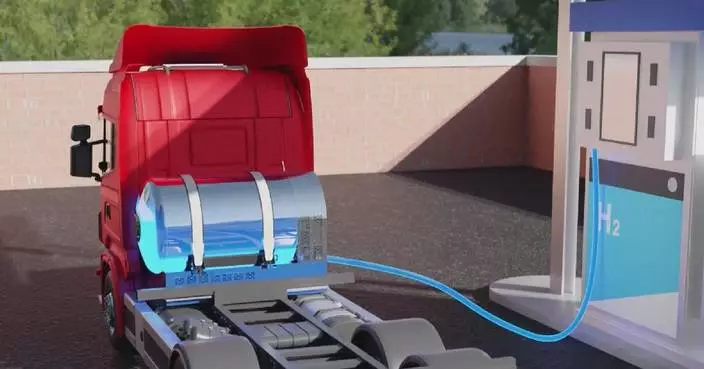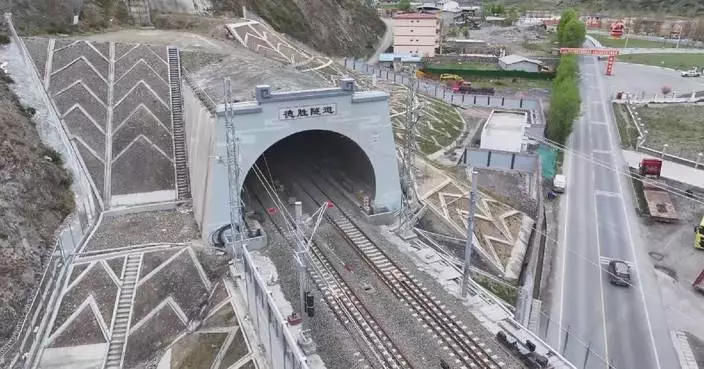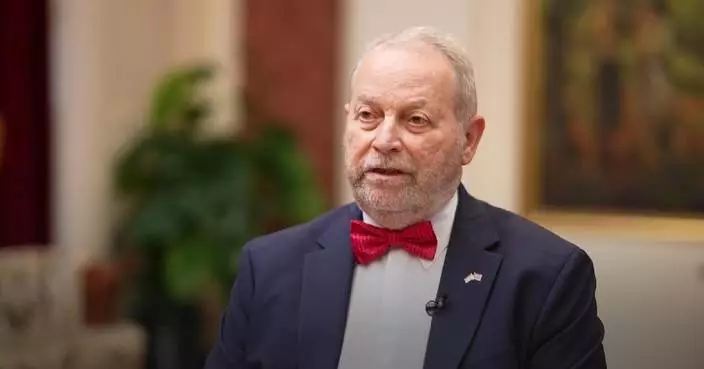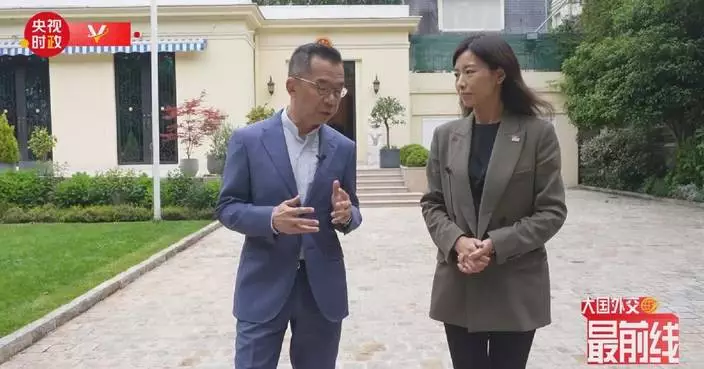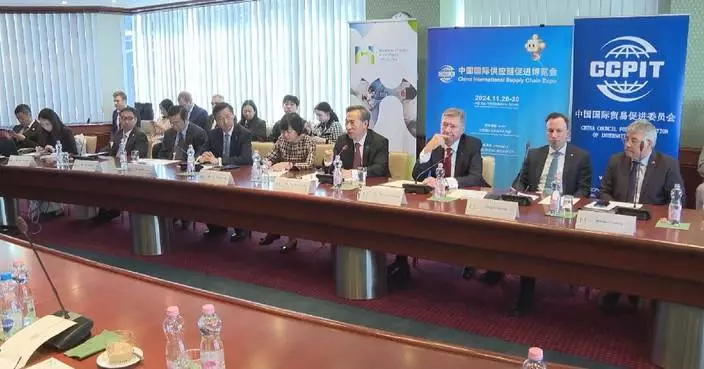The European Union (EU) should avoid politicizing economic issues related to China, particularly in the electric vehicle sector, said Hungarian Foreign Minister Szijjarto Peter in an interview with China Global Television Network (CGTN).
Szijjarto Peter expressed opposition to any proposal that could harm cooperation between China and the EU, including Hungary.
"We will go against any kind of proposal which would harm or restrict the European-Chinese, including the Hungarian-Chinese, cooperation. You can absolutely take it for granted, and I do hope that most of the European countries will be able to de-politicize and de-ideologize this question. I really do hope it. And once they are ready to do so, once they are able to do so, then I’m pretty sure that such kind of a proposal will fail, because it has to fail. Otherwise, it will further harm the European economy," said Peter.
Szijjarto also highlighted Hungary's pivotal role in the global shift from combustion engines to electric vehicles, noting its strategic partnerships with major automakers and battery producers.
"The combustion engines will be replaced by electric cars, and we are one of the three countries in the world. The other two are China and Germany. While the top premium car makers Audi, BMW and Mercedes are present, one of the three countries in the world. And all of them have deployed the heart of their electromobility strategies to Hungary," said Peter.
The minister also emphasized Hungary's emerging prominence in the electric battery sector, driven by significant investments from Eastern companies, particularly from China. He said he looks forward to the potential impact of the Belt and Road Initiative on Hungary's electric vehicle and battery manufacturing industry.
"On the other hand, we all know that the electric batteries which are kind of essential from the perspective of electric cars, right? are being produced by Eastern companies. The top ten global companies are all Easterners. There is one Japanese, three Koreans and six including the biggest one from China. And five of the top ten, two Koreans and three Chinese, including the number one, have committed themselves to invest and to operate in Hungary. So currently we are number four in the world when it comes to the capacity of manufacturing electric batteries. And once these investments by the Chinese companies are complete in the first quarter of 2025, we will be number two in the world. Number two, a country of only 10 million people. So this is an outcome from the Belt and Road Initiative. This is an outcome of the pragmatic Chinese-Hungarian cooperation," said Peter.

EU should avoid politicizing economic issues related to China: Hungarian FM
Secretary General of the International Federation of Red Cross and Red Crescent Societies (IFRC) Jagan Chapagain emphasized the critical urgency of tackling the climate crisis, which stands as one of the most fundamental challenges facing our world today, as he cited unprecedented weather patterns that have had an impact on human life and resources.
His remarks came during a Wednesday interview with China Global Television Network (CGTN), coinciding with high-level talks in Washington between China and the U.S. on addressing the climate crisis, scheduled from May 7 to 16.
Chapagain stressed the need for innovative fundraising mechanisms, as he highlighted lack of funding as the most critical challenge in combating climate change.
"I mean the climate crisis, if we talk about it, it's one of the fundamental crisis the world is facing today. If we just look back the last 12 months, look at the weather pattern anywhere in the world, it doesn't resemble to anything we experienced. And it's creating a multiple impact on human life; climate and health, climate and food security, climate and water-its impact there, climate and energy. So these are multiple issues that are impacting the people living in vulnerable settings. So at the moment, being humanitarian, it is not an easy time for the humanitarians. Now, the challenge is how do we get those negotiations and turn them into action on the ground where people are actually living. And there, I think the action part is still lagging behind. The second aspect which is also lagging behind is funding, because whenever you have any decision or resolution to operationalize that, it requires funding. And this has been one of the big asks from my organization; how do we get the funding channel to the communities and the countries which need it the most? I was recently in Malawi, and I had a chance to talk to the climate minister there. And one of his main concerns was the climate funding is not sufficiently reaching the communities who need it the most. They are trying their best, but the posting is the amount available is not enough," he said.
Climate action is a key focus for Chapagain's visit to China, as he believes that collaboration with countries such as China is crucial in tackling the climate crisis.
"The second thing is even when it is available, the flow of funding is not reaching the local community level, and this is one of our major asks. Globally, it has been to channel the right level of resources reaching the people at the community. And this is one of the things during my trip here in also China. I have been discussing because China has played a significant role in COP negotiations, but also in making a huge transition, particularly on the energy transition and investing at the community level. And I believe that the partnership with countries like China is extremely important if we are to turn the tide of the climate crisis," he said.

IFRC chief urges immediate action to combat climate crisis




